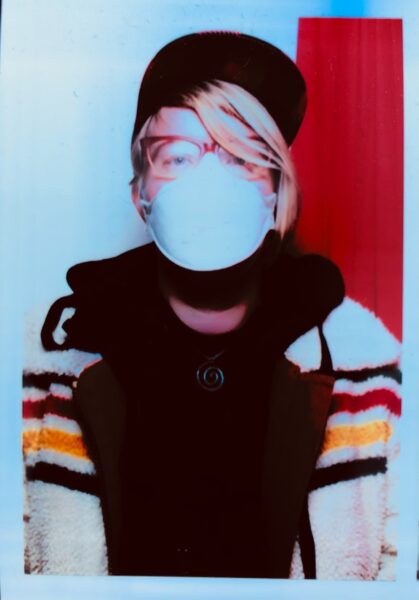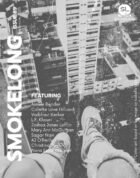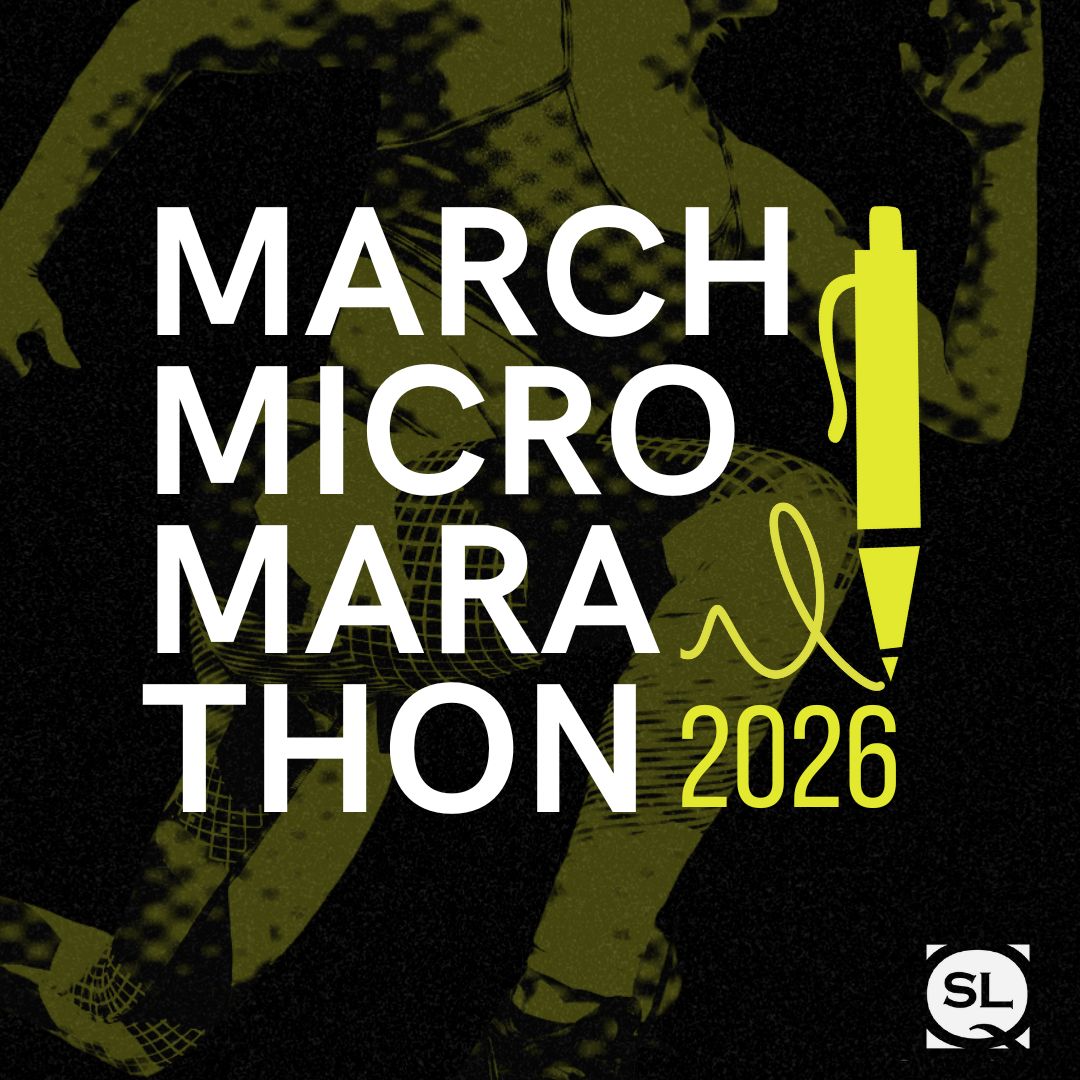Congratulations on “Code of the Mosh Pit”! I find the switching of POV in your story fascinating. How did it feel to include multiple points of view in such a short piece?
Thank you! Funnily enough, the multiple points of view came from a weekend-long workshop on autofiction I took at Literary Arts in Portland a couple of years back. The prompt was to rewrite an existing piece so that we kept switching the pronoun in some way. It turned out to be exactly the right thing for this particular piece, because a mosh pit is a perfect metaphor for how “you” and “I” and “we” become all jumbled and synched. Shoutout to that workshop’s teacher, Frances Badalamenti, for an excellent generative prompt!
Towards the end, you briefly zoom in on the “I,” which, after the plurals of “you” and “we,” feels startlingly intimate. How did you decide to put the spotlight on the individual within this group?
The paragraph from the first-person perspective was actually the first thing I wrote, probably because it’s the most deeply felt part of the story. This piece is non-fiction (Gaytheist is a real band, by the way, and you must check them out). I had just been to an all-ages hardcore show, which is not typically a thing, because these bands usually book at bars. But this show had more teens than adults, and the teens were all part of the same small punk scene in a small town so they probably all knew or had at least seen each other before, and man were they going for it on the dance floor! And here I was, about to turn 40, kind of at my physical limit already just from standing near loud music for a few hours, you know? But all my soul wanted was to mosh like a motherfucker. And I just couldn’t. Maybe if everyone else in the pit was 40, too, but I can’t keep up with the kids. So, in a piece that primarily tries to capture being part of a collective, this paragraph is the moment where my personal roar needed to burst through.
I love the humorous tone of your story, which you pair with a loving gaze and such profound longing. How did you develop this beautifully balanced voice for this piece?
I really appreciate you saying that about the voice. I wish I could say something fancier than the truth here, which is that this is simply how I feel around kids this age. I feel proud and protective, deeply invested in them having good lives—and I also feel this intense yearning for a version of my young self I didn’t get to be. I was real buttoned up as a kid, well-behaved, straight, cis, never drank or dyed my hair or swore in front of grownups. I didn’t understand myself as queer or start to feel actually comfortable in punk spaces until well into my thirties, so I just feel like I missed out on some things. I wish I’d been cool sooner!
To me, your story feels like a utopia. (If we think about utopia as moments of shared joy [e.g. a concert].) Here, you include and appreciate each character. Do you often write from a community-oriented space? How do you feel it influences your writing?
What a lovely question! It’s so interesting that you would say this about utopia, because this is also how I’ve been thinking about it—not achievable (or even necessarily desirable) as a long-term state, but a kind of flow state connected groups are capable of entering. Performances of all kinds are uniquely conducive to this, aren’t they?
Answering this got me looking at my past work. While I don’t think I’ve written from the perspective of community before, as I do in this piece, I think there are two ways in which community is important in my writing. First, especially because I only write non-fiction, I definitely do try to take care of everyone who shows up on the page, including myself, because we all exist in real life. I’ve definitely written things with the express purpose of showing love, or apologizing, to people in my life. Secondly, this writing practice is pretty new for me, and I owe it completely to the classes, studios, and writing groups I’ve been part of over the past several years. None of these words would exist without those communities, and wanting to do right by them definitely influences what and how I write!
When I was younger, I went to a Hungarian heavy metal band’s concert. I was safely jumping up and down at the back, when a friend of mine appeared from the mosh pit with a powerful nosebleed, asking for a tissue. I freaked out, but he just plugged in his nose and happily sprinted back to the front. Why do you think the mosh pit changed from “radiating aggression” to “a round table,” where “no one’s trying to win”?
You know, there are actually two long-established types of mosh pit—a “push pit” and a “circle pit.” You can get a bloody nose in either one! But for whatever reason, the only mosh pits I ever saw when I was younger were push pits, and the competitive body slamming could get genuinely scary if the energy skewed towards “toxic straight dude.” But when it doesn’t—and, in my experience, this is especially possible at queer-leaning shows, of which there are many more available than there once were—the body slamming just feels like pure safety, even if you are getting banged up. Maybe especially if you are. Intensity feels good in the body. Some people run marathons, some watch slasher movies, some do week-long meditation retreats—some people mosh. We all need extremes to feel like ourselves.



 In its third year, The March Micro Marathon will be, as usual, a prompt-a-day whirlwind for 24 days. You’ll exchange drafts of micro fiction, non-fiction, and prose poetry in small groups and gather for a series of online events (all recorded for participants unable to attend live). We’ll finish with 3 competitions, and participants who are not already in SmokeLong Fitness will be invited to workshop with SmokeLong Fitness until the end of April!
In its third year, The March Micro Marathon will be, as usual, a prompt-a-day whirlwind for 24 days. You’ll exchange drafts of micro fiction, non-fiction, and prose poetry in small groups and gather for a series of online events (all recorded for participants unable to attend live). We’ll finish with 3 competitions, and participants who are not already in SmokeLong Fitness will be invited to workshop with SmokeLong Fitness until the end of April!